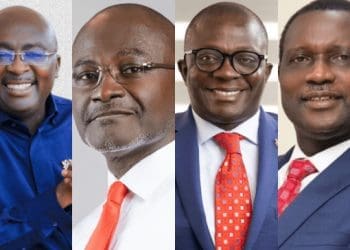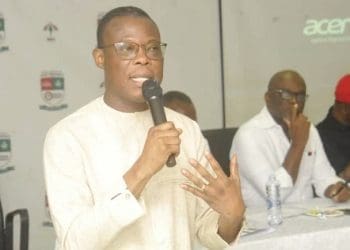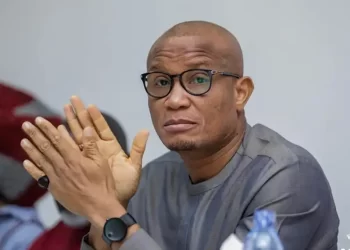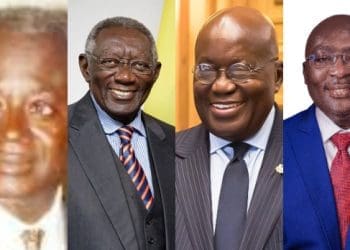South African President Cyril Ramaphosa has issued a stinging warning to world leaders, arguing that the G20 risks losing its legitimacy and purpose if it fails to confront widening global inequality, political polarisation, and the accelerating climate crisis.
Speaking at the G20 Social Summit, Ramaphosa cautioned that global development is “under siege” and accused wealthier nations of preserving an unfair international order that leaves developing countries “to settle for scraps.”
In an unusually blunt address, Ramaphosa linked today’s global instability to deep structural imbalances in the international system—imbalances he said threaten both the 2030 Sustainable Development Agenda and Africa’s own long-term blueprint, Agenda 2063.
“Inequality in wealth distribution, imbalances in development financing and disparities in access to financial resources are holding back our collective progress,” he said.
The summit, only the second of its kind since its introduction under Brazil’s G20 presidency last year, is being held in the months leading up to South Africa’s historic hosting of the G20 Leaders’ Summit—the first ever on African soil.

Ramaphosa described this milestone as symbolic of Africa’s growing role in shaping global governance, but insisted it must be matched by meaningful action from the world’s major economies.
Critique of global power structures
Ramaphosa’s central argument focused on what he called the “undemocratic architecture” of global financial and governance systems.
He accused powerful countries of maintaining unwritten rules that privilege them at the expense of developing nations.
“It cannot be that a country’s geographical location or income or army determines who has a voice and who is spoken down to,” he said.
He urged the G20 to commit to reforms that democratise global governance, expand access to development finance, and protect vulnerable countries from the volatility of global trade and capital flows.

Until such reforms happen, he suggested, talk of global cooperation will remain hollow.
South Africa’s G20 presidency, he said, has prioritised elevating the concerns of developing economies, particularly the need to eradicate poverty, reduce inequality and unlock equitable development.
But he cautioned that no decisions taken at the upcoming Leaders’ Summit would carry legitimacy unless they are “nourished by strong roots”—the voices of civil society, labour, youth, women’s groups and other grassroots constituencies.
Civil society demands and social justice
Ramaphosa highlighted the wide-ranging consultations that have shaped the Social Summit—from debates on digital inclusion and climate justice to calls for media freedom, democratic strengthening and just energy transitions.
Delegates, he said, have demanded the scaling up of global water investment, the strengthening of resilient value chains, and a more inclusive transition to a low-carbon future.
Marking World Children’s Day, Ramaphosa backed calls for urgent global action to eliminate child poverty, hunger and exploitation. He also warned that the withdrawal of development assistance from health programmes is undermining the rights of the most vulnerable.
As a member of the Global Leaders Network for Women’s, Children’s and Adolescents’ Health, he vowed to mobilise financing to protect essential services.

A sharp stand on gender justice
In one of the speech’s strongest passages, Ramaphosa invoked Thomas Sankara’s famous declaration that no society can call itself revolutionary while women remain oppressed.
He linked gender inequality directly to economic stagnation and social decay.
“No society can thrive for as long as gender-based violence and femicide continue and the agency of women is denied,” he warned.
South Africa has declared gender-based violence a national crisis, and Ramaphosa said extraordinary action is required from all sectors to reverse the tide.
He urged men and boys to actively confront harmful norms and power imbalances that perpetuate violence.
A call for global solidarity
The South African leader argued that the G20, representing 85% of global GDP and two-thirds of the world’s population, has both the responsibility and the capacity to reshape global development.
But doing so, he insisted, requires abandoning the old hierarchies of global power and embracing a new ethic of solidarity.

He urged the summit to follow the example of historic gatherings like the Bandung Conference and the anti-apartheid People’s Conference—forums that elevated the voices of the oppressed and shifted global consciousness.
Ramaphosa closed with an appeal for the Social Summit to serve as a compass that guides the G20 toward a future grounded in equality, sustainability and shared prosperity.
No matter the geopolitical turbulence ahead, he said, the world must “keep its eyes fixed on the horizon of progress” and chart a new course that gives practical meaning to global solidarity.













